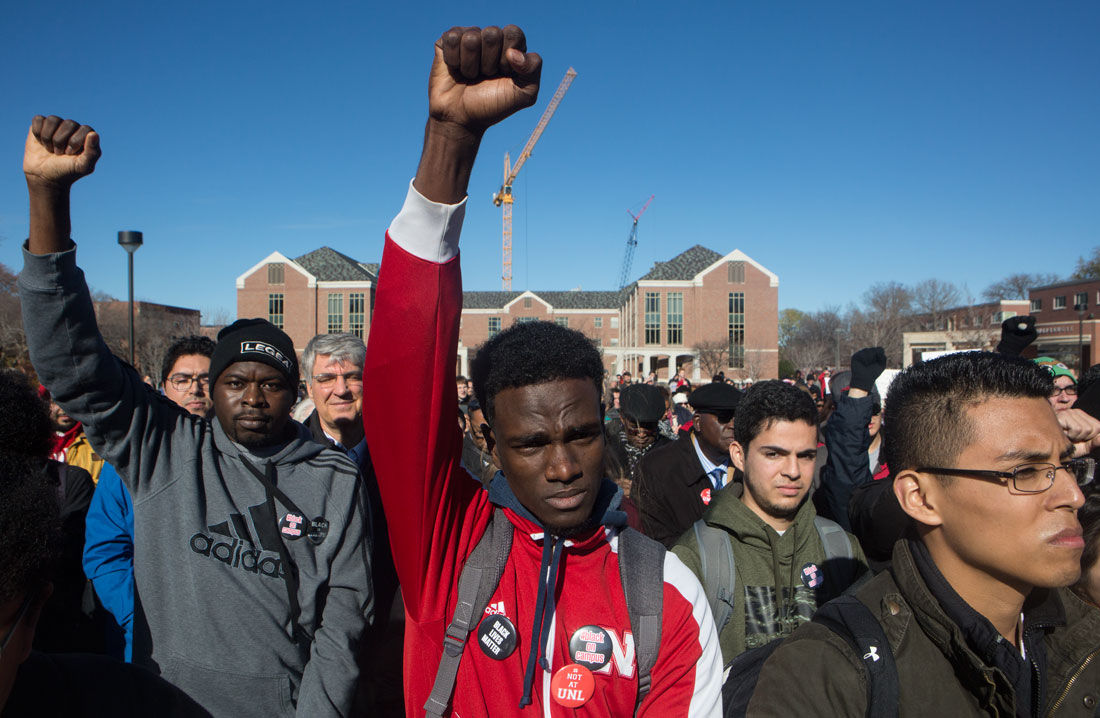

A conversation about speech on campus
Let's talk about speech.
On multiple occasions throughout this academic year alone, the University of Nebraska-Lincoln has been both criticized for its restriction and praised for its defense of student speech.
It’s a decades-long debate and one that is far from exclusive to Nebraska’s flagship university. College campuses are a breeding ground for discussion on students’ rights of expression, and while some of these discussions have proven more productive than others, students and administrators alike have yet to come to agreement on where to draw the line on student speech – or whether to draw one at all.
In concurrence with this project examining freedom of speech and expression on the UNL campus, The Daily Nebraskan surveyed UNL students on their knowledge and opinions of their ability to exercise their First Amendment right to freedom of speech and expression.
While 12 percent of surveyed UNL students said they’ve felt their freedom of speech or expression directly or explicitly limited on campus, more than two and a half times as many said they’ve felt indirect or implicit limitations. And more than 75 percent said a campus climate may prevent some people from saying or doing certain things because of how others may react.
Some respondents attributed this phenomenon to a goal of political correctness, others pointed to an increasingly divided political climate. Students from all points on the political spectrum expressed insecurity in their ability to freely speak their mind without fear of retaliation. Still, others said an increased push for diversity has led to restriction of speech that may be deemed exclusive or offensive to others.
But these issues extend far beyond campus borders – and some respondents said they felt more comfortable speaking out on campus because its educational setting is inherently supportive of constructive disagreement and lends itself to a more civil discourse.
Freedom of speech allows us to have conversations about speech itself.
These conversations include discussion of a professor’s ability to express political opinions in the classroom, the tensions between Title IX and the First Amendment and the limits – if any – on groups’ abilities to hold campus demonstrations about sometimes controversial issues.
As we dive into some of these issues, we hope to foster a dialogue about speech: where and how it can be expressed, where and how it can be limited and where and how the discussion is ongoing.
Welcome to the conversation.
of students said they’d participated in a protest, demonstration and/or rally on campus this academic year.
- Sophomore, College of Arts and Sciences
- Husker football player DaiShon Neal
of students say professors should be able to openly express their political views in the classroom.
- UNL Chancellor Ronnie Green
of students say they believe that their peers value free speech.
Reporters: Ellis Clopton, Grace Harmon, Joe John, Jessica Larkins, Zach Markon, Hana Muslic, Matt Hanson, Natasya ONg, Christa Rahl, Elizabeth Rembert, Ally Sargus
Photographers: Zach Henke, Jacy Lewis, Adam Warner, Julian Tirtadjaja, Elsie Stormberg, Hannah DePriest, James Liu, Karissa Schmidt, Amber Baesler
Website: Matt Hanson
Editors: Lani Hanson, Lauren Brown-Hulme, Chris Bowling, Nick Gebhart, Collin Spilinek, Brett Nierengarten, Riley Bowden, David Stover, Stephanie Cavazos, Ben Buchnat, Maddie Stuart, Amber Baesler, Nicole Eisenbraun